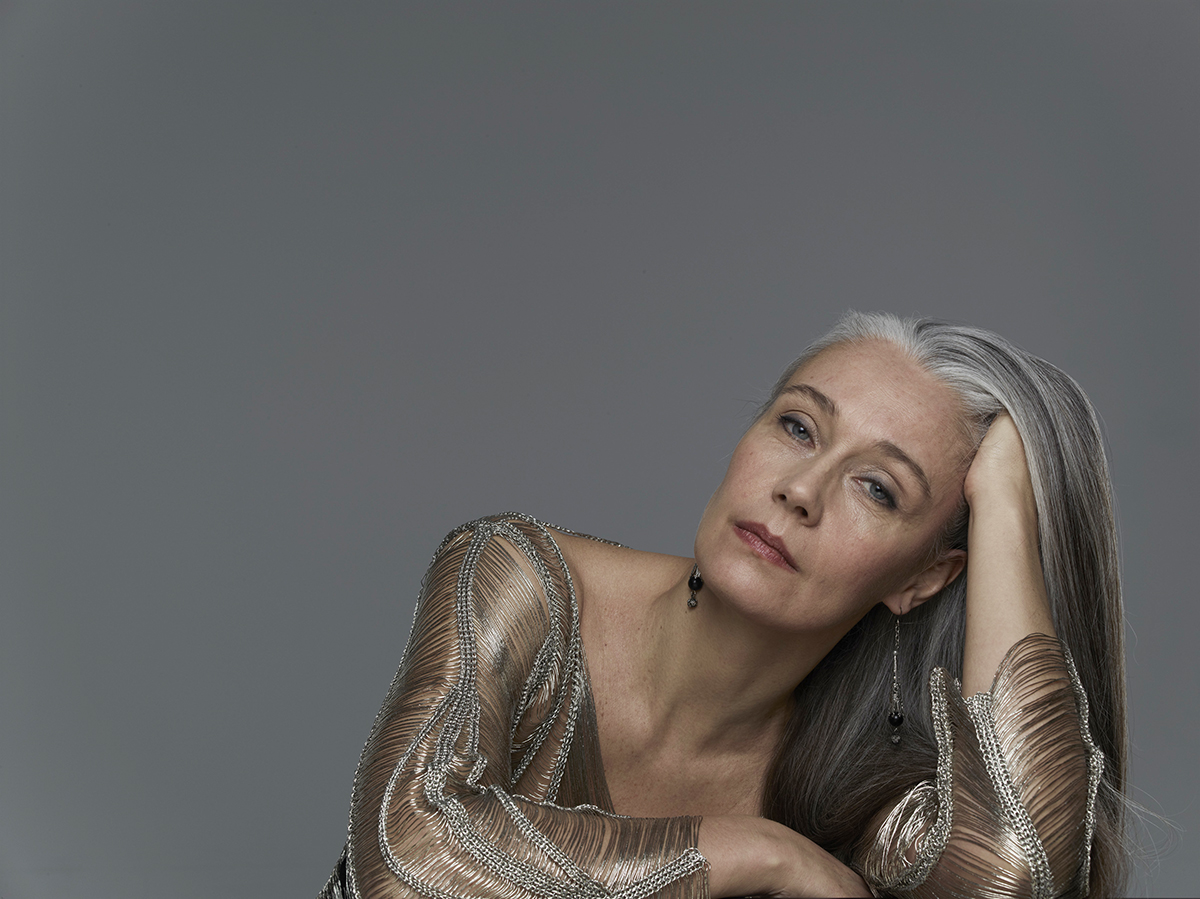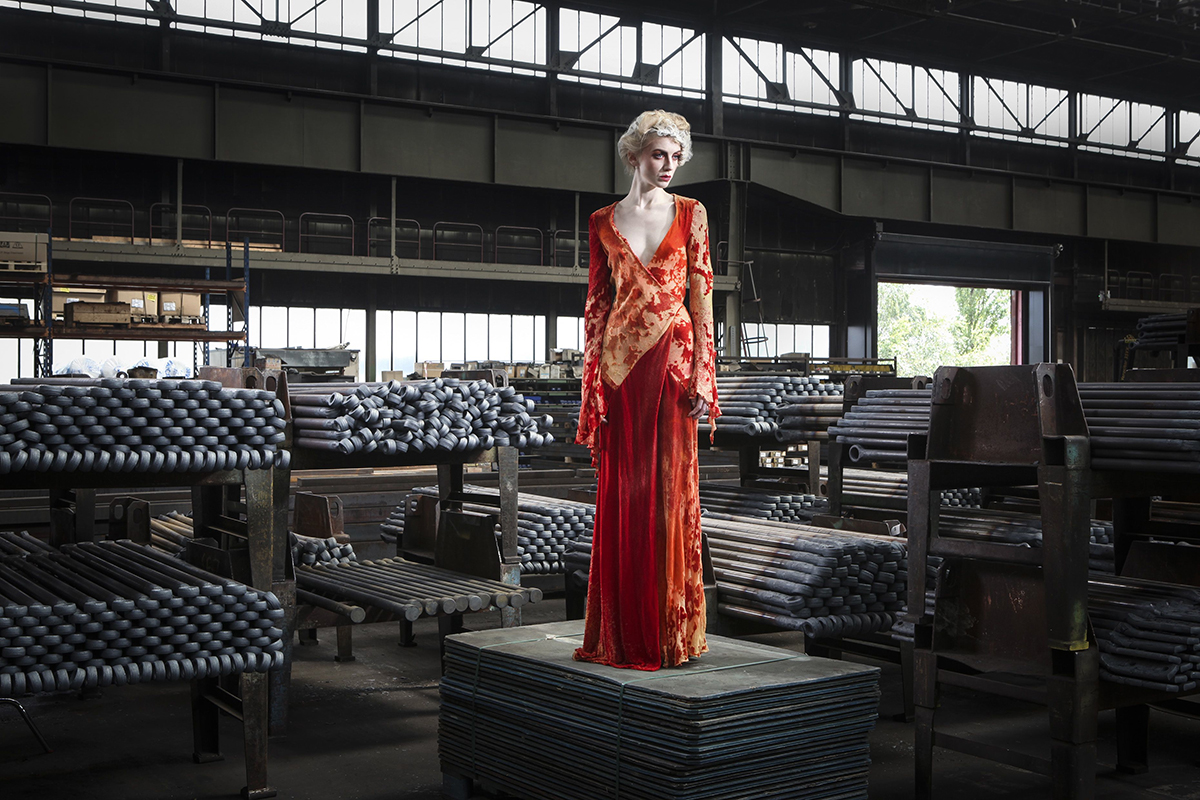FSAD to host Helen Storey as its first designer-in-residence
By Daniel Aloi

Groundbreaking British fashion designer Helen Storey is coming to Cornell for two weeks this month, hosted by the Department of Fiber Science & Apparel Design (FSAD) as its first-ever designer-in-residence.
On campus Sept. 12-24, she will interact with FSAD students and faculty, give guest lectures in classes, provide advice and critique student work, and exhibit some of her own creative work. Storey will also give a public lecture, “Inventing a Life: A Journey Between Fashion and Science,” Sept. 21 at 4:45 p.m. in G71 Martha Van Rensselaer Hall.
Jintu Fan, professor and chair of FSAD, invited Storey to Cornell and said he considers her “an example of what an outstanding designer could be.”
The residency aims “to create an environment for the exchange of ideas that is forward-thinking and creative,” Fan said. “That’s why I thought of Helen Storey – she’s very creative and has some radical ideas. She had a collection taking inspiration from embryonic forms of life, and creates fashionable dresses that break down airborne pollutants. It’s potentially eye-opening for our students.”
Denise Green, assistant professor of FSAD, worked with Storey to organize an exhibition of garments and films about the designer’s work, “Feeling My Way,” on display Sept. 14-23 in the College of Human Ecology’s Jill Stuart Gallery, with an opening reception Sept. 14 at 3:30 p.m.
“She’s using new technologies and experimentation to create work right at the forefront of fashion and science,” Green said. “It’s both conceptual and quite practical as well … Her design process involves thinking about the whole life cycle.”
Sustainability and materials science – as well as such environmental and human challenges as climate change, migration and scarcity of water – are among Storey’s varied interests. A recent project, “Dress for Our Time,” features data on human displacement projected onto a dress made from a United Nations refugee tent.
“Over the years I’ve realized that a designer can do many things. They can make stuff, but they can also broker relationships that are supposed to happen,” Storey said recently from London.
The exhibition includes “dresses that dissolve and disappear, dresses that purify air, and the latest work with the United Nations and refugees in Jordan,” she said. “I tried to pick projects and materials that span across time, the different eras from when I went into the fashion business to what I’m working on today. I’ve been working in a cross-disciplinary way for about 20 years.”
Storey and chemist Tony Ryan, her longtime collaborator and the Mary Upson Visiting Lecturer in Materials Science and Engineering, will present “When Art Met Science,” Sept. 12 at 4:30 p.m. in B11 Kimball Hall.
Her projects with Ryan have included Catalytic Clothing, garments and textiles using photocatalysts to improve air quality; and Wonderland, exploring new alternatives to plastic and more eco-friendly materials for consumer products. Primitive Streak, developed with her sister, biologist Kate Storey, is a clothing collection explaining the first 1,000 hours of human life. Storey also cofounded Free Radicals, a collective researching and creating new products and ideas to solve challenges facing the planet and mankind.

Storey trained at Valentino and Lancetti in Rome for two years before starting her own fashion label in 1984, earning design innovation honors and nominations for British Designer of the Year in 1990 and 1991. Combining art, science and fashion since the 1990s, she established the nonprofit Helen Storey Foundation in 1999. Her “Dress of Glass & Flame,” highlighting climate change, was exhibited at the 2013 Venice Biennale.
“I started in traditional 1980s fashion, dressing people like Prince and Madonna,” she said. “Having learned so much in that period, I’ve put a lot more into what the world is asking us for.”
She has been a professor of fashion and science at University of the Arts London and its London College of Fashion since 2009.
“My teaching role is unusual,” she said. “I don’t stand in front of a class and lecture, as such, but I invite students to join in the creation of something as I am creating it. That’s the bit that I enjoy and they enjoy. It keeps me on my toes, and I get to see what the next generation is thinking and feeling and give them real-world situations where they can test out their thinking and their practice early.”
Storey’s appointment extends throughout the 2016-17 academic year, during which she will remain in contact with FSAD faculty and students.
“I’m excited to see what she brings, and how students engage with her work – and how they’re inspired as well,” Green said. “She’s got a lot of curiosity, and one of the greatest things to see in our students is that sense of curiosity.”
Media Contact
Get Cornell news delivered right to your inbox.
Subscribe